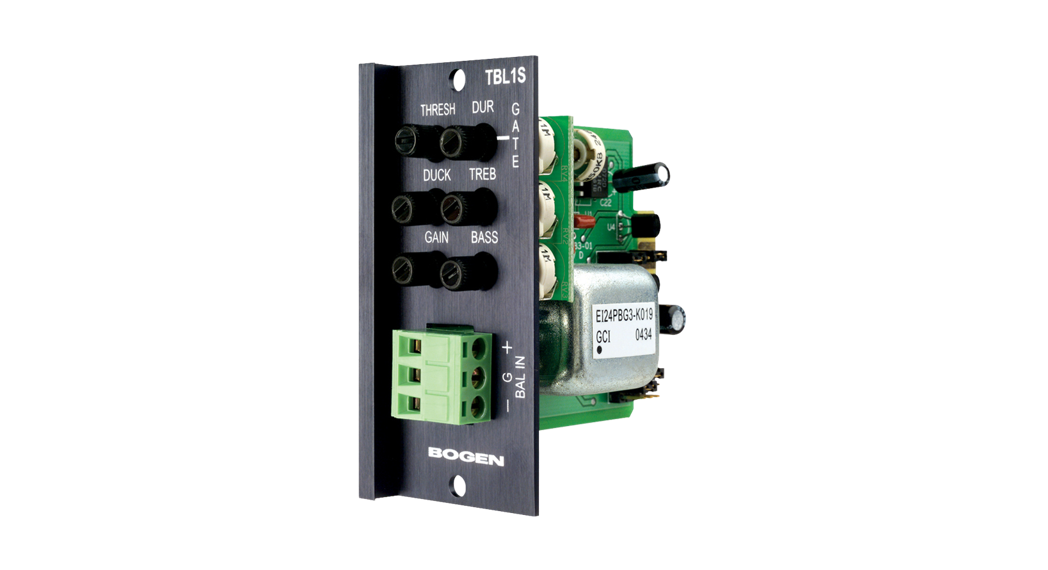
TBL1STransformer Balanced Line Input Module
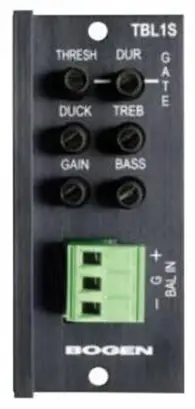
Features
- Transformer-isolated line-level input
- Gain/Trim control
- Bass and treble
- Audio Gating
- Gating with threshold and duration adjustments
- Variable signal ducking when muted
- Fade back from mute
- 4 levels of available priority
- Can be muted from higher priority modules
- Can mute lower priority modules
- Pluggable screw terminal strip
Module Installation
- Turn off all power to the unit.
- Make all necessary jumper selections.
- Position module in front of any desired module bay opening, making sure that the module is right-side up.
- Slide module onto card guide rails. Make sure that both the top and bottom guides are engaged.
- Push the module into the bay until the faceplate contacts the unit’s chassis.
- Use the two screws included securing the module to the unit.WARNING: Turn off power to the unit and make all jumper selections before installing the module in the unit.
Jumper Selections
Priority Level*This module can respond to 4 different levels ofpriority. Priority 1 is the highest priority. It mutes modules with lower priorities and is never muted.Priority 2 can be muted by Priority 1 modules and can mute modules set for Priority Level 3 or 4.Priority 3 can be muted by either Priority 1 or 2 modules and can mute Priority 4 modules. Priority 4 modules are muted by all higher priority modules. Remove all jumpers for the “no mute” setting.* The number of priority levels available is determined by the amplifier the modules are used in.
GatingGating (turning off) of the module’s output when insufficient audio is present at the input can be disabled. Detection of audio for the purpose of muting lower priority modules is always active regardless of this jumper setting.
Bus AssignmentThis module can be set to operate so that the mono signal can be sent to the main unit’s A bus, B bus, or both buses.
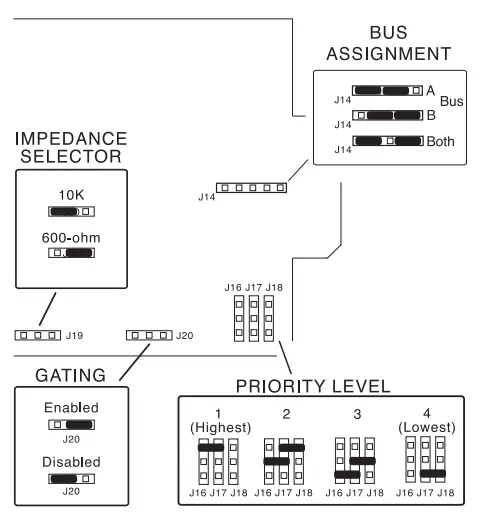

Impedance SelectorThis module can be set for two different input impedances. When connecting to a 600-ohm source, it is desirable to have a 600-ohm matching input impedance. For typical source equipment, use the 10k-ohm setting.


Block Diagram
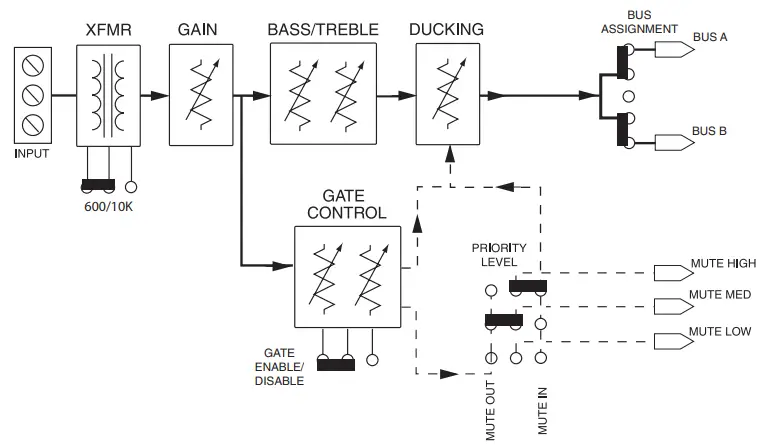

Input Wiring
Balanced ConnectionUse this wiring when the source equipment supplies a balanced,3-wire output signal.


Connect the shield wire of the source signal to the “G” terminal of the input. If the “+” signal lead of the source can be identified, connect it to the plus “+” terminal of the input. If the source lead polarity cannot be identified, connect either of the hot leads to the plus “+” terminal. Connect the remaining lead to the minus “-” terminal of the input.
Note: If the polarity of the output signal versus the input signal is important, it may be necessary to reverse input lead connections.
Unbalanced Connection
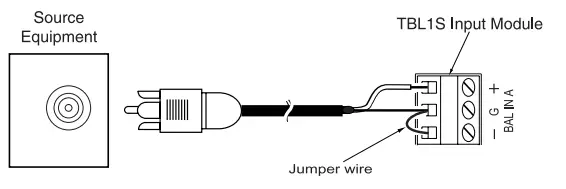

When the source device provides only an unbalanced output (signal and ground),the input module should be wired with the “-” input shorted to ground (G). The unbalanced signal’s shield wire is connected to the input module’s ground and the signal hot wire is connected to the “+” terminal. Since unbalanced connections do not provide the same amount of noise immunity that a balanced connection does, the connection distances should be made as short as possible.



COMMUNICATIONS, INC.www.bogen.com
Printed in Taiwan.© 2007 Bogen Communications, Inc.54-2084-01D 0704Specifications are subject to change without notice.
References
[xyz-ips snippet=”download-snippet”]

